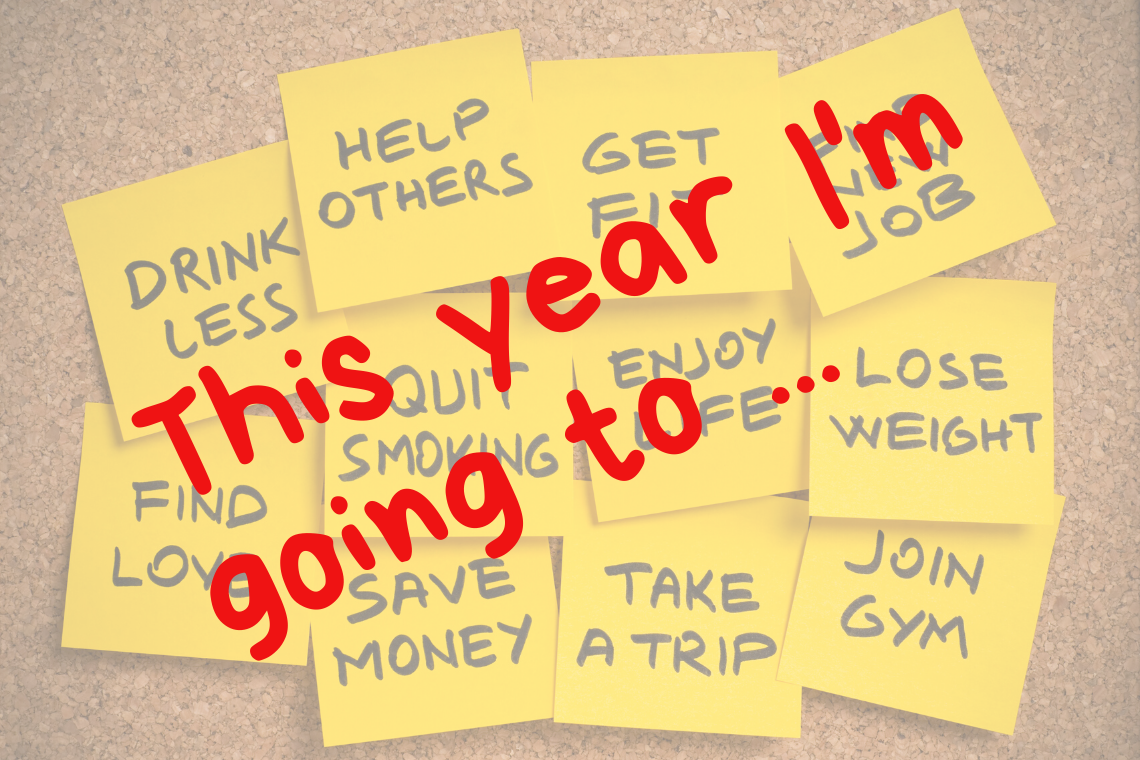It’s coming into that time of the year again – holiday season and then the New Year. As is usually the case when January 1st rolls around, many of us will be looking to make a new year’s resolution or two and chances are that these will be related to our personal wellbeing.
One of the main triggers for a new year’s resolution is the remorse that comes from a month (or more) of eating, drinking and merriment. What happens is that we go through the holidays abandoning our self-restraint (after all, isn’t that what holidays are for?) telling ourselves that, come the new year, we’re going to lose weight, reduce the drinking and get in shape.
Come January 1, enthusiastic resolutioners account for the sharp rise in gym memberships and quit smoking programs, yet by the second week of February, some 80% of those resolutioners are back home with a new kind of remorse staring back at them in the mirror – the remorse of disappointment. Why is it that with such good intentions, getting fit, losing weight and improving our lives seems so elusive?
The answer is very simple, however the practice is decidedly much harder. Unless you first change your mind, it is very difficult to expect your health goals to materialise. It’s not the gym, the diet or the nicotine patches that will change you – it’s your mind.
Making change in your life is difficult as it requires a new and different mindset to be forged, time for new and healthier habits to form and importantly, self-discipline. Essentially, you build self-discipline by wilfully enduring the transient discomfort of changing who and what you are. You’re not born with self-discipline; you acquire it. Instead of reflexively feeling a need to escape the stress involved in change, recognise instead the need to endure it.
It’s not easy but here are some more tips that have been adapted from the principles of organisation change management will help you through these challenging times and put you on the path to a healthier and happier you.
- Set smaller and achievable goals. If your goal is so far away it seems almost unachievable, when the difficult times come as they inevitably will, it will all become too hard. Set smaller, realistic goals and when you achieve these, congratulate yourself, and then start again by setting the next small goal.
- Cultivate optimism. No one’s life is without negatives. The key is to train yourself to focus on the positives. They will be there! Make a determination to stop complaining – being negative can be a habit in itself that needs to change. Don’t allow yourself to procrastinate. Make the decision in your mind to look at the positives.
- Develop critical self-awareness. Identify your reflexive and destructive habits so that you are prepared for them when they arise. Often these first emerge as impulsive thoughts so it’s important to recognise your go-to thoughts and subsequent behaviours, and have a plan to counteract these.
Sticking to new year’s resolutions isn’t easy. Hopefully, these tips will help you achieve a healthier and happier start to 2020. Although this time it won’t just be a new year, it will be a new decade, so what better time to make a new start. Go on. Change your mindset. Make the decision. Back yourself!
Please contact QRMC for more information.











